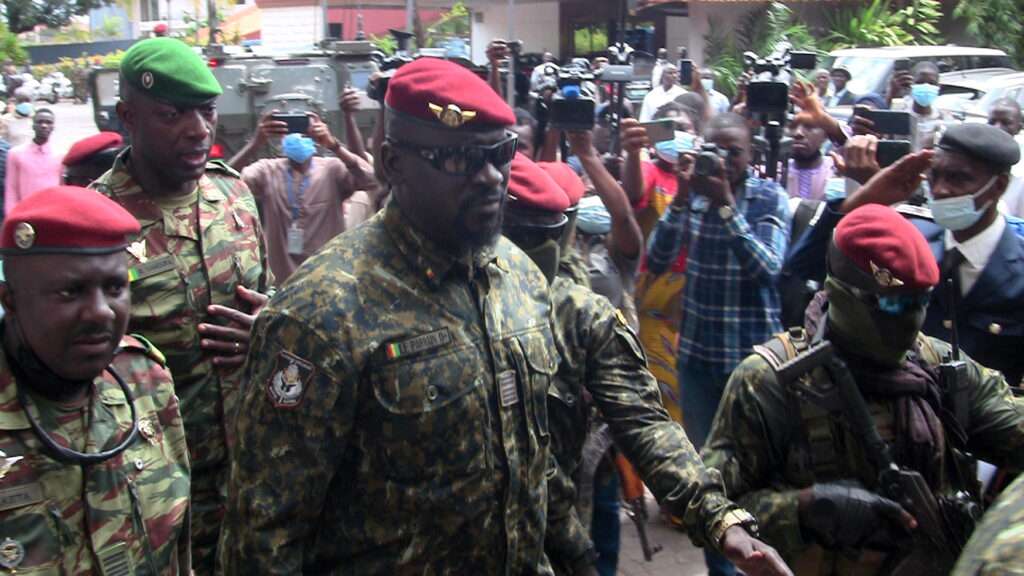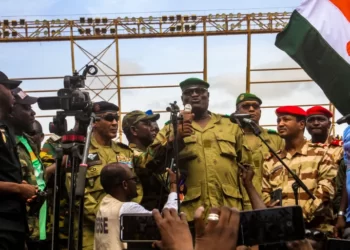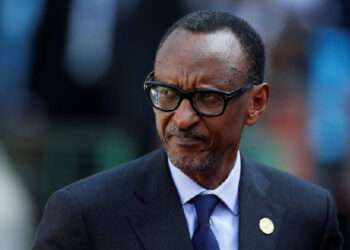Two people were tragically shot dead on Monday, February 26 in Guinea’s capital, Conakry, during the first day of an open-ended general strike.
The Guinean Trade Union Movement, an umbrella group of major unions in the West African country, urged public and private sector workers not to go to work, starting from Monday.
The group of unions issued a statement demanding several concessions from the junta. These included lowering food prices, lifting internet restrictions, and releasing a prominent media figure who had been detained.
The Trade Union Movement said the strike would be indefinite.
Conakry witnessed a standstill, with deserted schools, shops, markets, and roads, along with minimal services in hospitals. Youth erected barricades on main roads, leading to sporadic clashes on the outskirts, resulting in the tragic shooting deaths of two young men.
“They killed our son, they targeted him and shot him in the neck,” said Adama Keita, a relative of an 18-year-old who was caught up in clashes with security forces.
This was confirmed by a witness and a police source, speaking on condition of anonymity.
“I saw the motionless body of this teenager, I had tears in my eyes, and I immediately left the scene so as not to be associated with this type of crime.”
Another young man lost his life elsewhere under similar circumstances. A doctor at the hospital where he died confirmed the devastating news.
The second victim’s father, painfully recounted the moment he received the call: “Around 12:00 pm (local time), the security forces called me when I was at the construction site to tell me that they had shot my child. When I got home, my younger brother called me back to say that he had died.”
The grief and anger are palpable. The junta leader, Colonel Mamady Doumbouya, who had promised justice as the compass guiding all Guineans, now faces scrutiny.
A ministry official, speaking anonymously, supported the strike, emphasizing that it would remind the authorities that “they are not gods on earth.”
“I’m on strike because Guineans are sick of the artificially created suffering, maintained by our leaders.”
A Background To The General Strike
The strike comes a week after Guinea’s military junta dissolved the transitional government – which had been in office since July 2022.
The announcement was made through a presidential decree read on state TV on Monday, February 19 by the presidency’s Secretary General, Brig Gen Amara Camara.
Mr. Camara did not provide reasons for the dissolution or specify a timeline for the formation of a new government.
Ministers from the dissolved government were directed to surrender their passports and official vehicles, with their bank accounts subsequently frozen.
The junta further ordered security agencies to “seal” all national borders until governmental ministries are fully transferred to their control.
According to Mr. Camara, lower-level officials will oversee state ministries temporarily until the establishment of a new government.
Bernard Goumou headed the dissolved government, having been appointed Prime Minister by coup leader Mamady Doumbouya.

In September 2021, Colonel Doumbouya spearheaded Guinea’s military in ousting elected President Alpha Condé, following widespread protests against Condé’s contentious pursuit of a third term.
Guinea, alongside several other nations in West and Central Africa, experienced a wave of coups in recent years. Among these are Mali, Burkina Faso, Niger, and Gabon.
The coups have faced strong condemnation from the West African regional bloc ECOWAS, as well as the African Union and the United Nations.
Guinea is expected to hold elections to restore democratic rule in 10 months when the 24-month transition period set by the junta and ECOWAS expires.
READ ALSO: Ethiopia’s UN Ambassador Defends Agreement with Somaliland Amid Sovereignty Dispute





















